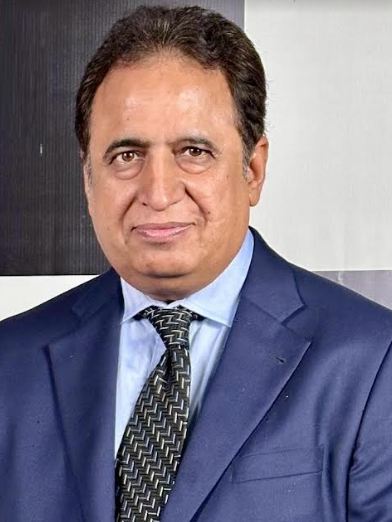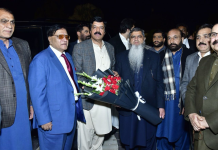Lahore, JUN 22 /DNA/ – The value-added textile exporters have rejected the proposed shift from one percent turnover-based Final Tax Regime (FTR) to the standard taxation at 29 percent of taxable profit, proving to be disastrous for the exports.
Pakistan Hosiery Manufacturers & Exporters Association (PHMA), in a hurriedly called meeting, held here today, observed that this proposal to remove exports from FTR must be dropped from the Finance Bill 2024 to prevent further deterioration of trade deficit and resulting pressure on foreign exchange reserves.
“We are in state of shock on the adverse announcements in the Federal Budget 2024-2025 against exports which will sabotage the hard decades-long efforts of exporters to earn valuable foreign exchange for the country and to provide highest employment.”
Besides PHMA North Zone senior vice chairman Amanullah Khan, M. I. Khurram of Comfort Knitwear and Sheikh Zafar Mahmood of Combined Fabrics, a large number of knitwear industry representatives attended the meeting to review the anomalies of the new budget 2024-25.
PHMA North Zone SVC Amanullah Khan observed that historically, the FTR has offered transparent mechanism for taxing export proceeds electronically irrespective of profit or loss on realization of their export proceeds. He said that this imprudent tax measure has been proposed not with an intention to enhance revenue but to open up the doors of corruption and harassment in the hands of FBR. He mentioned that presently the exporters are also contributing 0.25% as Export Development Surcharge.
M. I. Khurram of Comfort Knitwear, while addressing the meeting, stated that the proposal to eliminate zero-rating on local supplies under Export Facilitation Scheme (EFS) will have highly adverse effects on export. He said that removal of zero-rating on local supplies to registered exporters will compel the exporters to claim refunds of Sales Tax from FBR which is lengthy process contrary to the spirit of EFS.
M. I. Khurram said that already, billions of rupees Sales Tax Refunds are stuck-up with the government. Therefore, this adverse proposal must also be dropped from the Finance Bill 2024, he demanded.
Sheikh Zafar Mahmood of Combined Fabrics, on this occasion, added that the proposal to confer extraordinary powers to FBR officials through investigative audit would open up a floodgate of corruption. The newly added concept of “Investigative Audit” under Section 25 of the Sales Tax Act, 1990, aims to address tax fraud but increases regulatory burdens and the risk of misinterpretation, leading to frequent audits based on vague suspicions, he said.
Sheikh Zafar Mahmood pointed out that the FBR can now conduct investigative audits if it suspects tax fraud, even with the Assistant Commissioner’s approval. This raises concerns about potential misuse and coercion by tax authorities, fostering an environment of uncertainty and fear that will defeat the efforts to broaden tax base and discourage new investment in such anti-business environment.
The PHMA members said that the export-oriented industries are already deprived of even level playing field to compete in the region after suspension of financial matrix of the Textile & Apparel Policy 2020-2025 with discontinuation of Duty Drawback on Local Taxes & Levies and Regionally Competitive energy tariffs.
They look forward to the government for kind considerations and necessary intervention to remove the harsh anti-export proposals and recommendations.

















